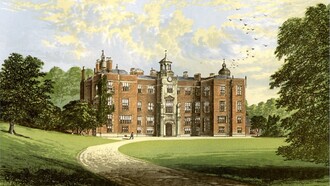I don't look at my country's past the way I was taught to in school; I don't think the large majority of my generation and those younger than us do. For us, all the arguments and nitpicking are essentially a waste of time when held up against a simple truth: Colonialism was a crime, plain and simple. It doesn't matter that your country "discovered" how to do it; we can't feel proud about it and sing the same songs of our grandparents uncritically.
Yes, in Portugal, the idea of the "Discoveries" as that of a glorious past is still, for some reason, taught in schools. The Portuguese having an overseas empire (which involved kidnapping, terrorism, exploitation, and slavery) was, in fact, a net positive for history, as embodied in the sentence "We gave worlds to the world.".
A majority of young people, and those who recently slid out of youth, do not agree. And that's because we live much more pan-European lives than our forefathers, and we are acutely aware of how untenable this position is internationally.
You don't see large swaths of French or English middle-aged people singing about the glory of imperialism with pride in the third decade of the 21st century, without them consequently being consigned to the political extremes. However, in Portugal, my generation is resigned to the fact that most of those who came before us will feel that way until the day they die, even those who are moderate or even apolitical.
Recent years have brought this subject to the forefront, and debates around the issue have begun to be had in the media and at an institutional level. Personally, I have always thought it ridiculous to claim you "discovered" places that already had thriving civilizations living on them. The standard response is to say that actually what the Portuguese discovered were sea routes, and to that, I reply that the actual discovery was how to use those routes and practices, such as slavery, to exploit other people.
I refuse to split hairs over old tomes, arguing the details of history, when the past practices of the Portuguese State and their criminality are held globally as indefensible facts. Furthermore, I think it reflects poorly on Portuguese society that these issues have only recently become controversial, not being publicly challenged at any significant level.
Also, what does the poorest country in Western Europe gain from clinging to an anachronistic concept of glorious imperialism? One-third of Portugal's youth have departed the country in pursuit of aspirations they gave up on finding at home—a disproportionate number of them possessing advanced degrees and demonstrating overall high scholarship. Do these individuals yearn for the days of the Portuguese empire, its colonies, and its discoveries? Or do they envision the ideals of a modern Europe, a vision that has yet to materialize at their doorstep despite promises and expectations?
It is a form of conservative institutional schizophrenia, given that the same country's capital, Lisbon, was recently elected European Capital of Innovation and that the country courts foreign investment by positioning itself as forward-thinking. That same country sees any challenge to the indoctrination of its children to the glorious of an imperialist past (a routine that has now failed to take hold in two successive generations) as the invasion of a foreign, "woke" mentality.
Ultimately, it may be the sign of a deeper identity crisis, of a nation struggling to find its footing in the current day, stumbling from one crisis to the next, never taking stock of its past mistakes to lay down a proper plan for its present or a vision for its future.















